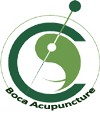Click here to watch our video.
Blog
Acupuncture mobile clinic for Palm Beach, Palm Beach Garden, West Palm and Manalapan
Li Zheng, a Chinese acupuncturist with over 30 years of clinical experience, has established a mobile acupuncture clinic serving the communities of Palm Beach, Delray Beach, Palm Beach Gardens, West Palm Beach, and Manalapan. Her mobile service is designed for those who need acupuncture treatments twice or three times a week to achieve the best and quickest therapeutic results and have no time to travel back and forth from her Boca Clinic to their home.
If you’re looking for an acupuncturist near you, consider searching for terms like “acupuncture near me dry eye,” “acupuncture near me back pain,” “acupuncture near me neuropathy,” “acupuncture near me glaucoma” or “acupuncture near me macular degeneration, “Acupuncture near me neck pain”.
How can acupuncture and herbs help inflammation and circulation?
Click here to watch our video.
Balance Immunity and Optimize Inflammation
Click here to watch our video.
How can we prevent dry eye and macular degeneration until we reach 90 years old?
Click here to watch our video
How can we balance our immune system to avoid allergies and autoimmune disease: optimizing the inflammation level?
Click here to watch our video.
How can we use Horney goat weed to treat ED, low testosterones, osteoporosis and menopause?
Click here to watch our video.
How can we use healthy food and lifestyle to lose weight and reduce the stress?
Click here to watch our video.
Best acupressure points for acute lumbar pain
Click here to watch our short video.
How can we optimize the information level to avoid allergies and auto immune disease?
Click here to watch our video.







